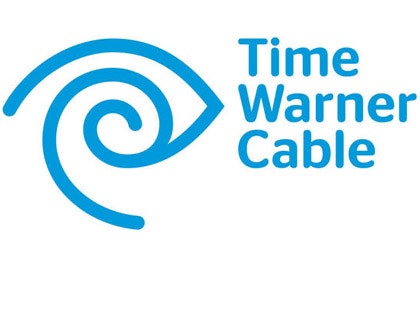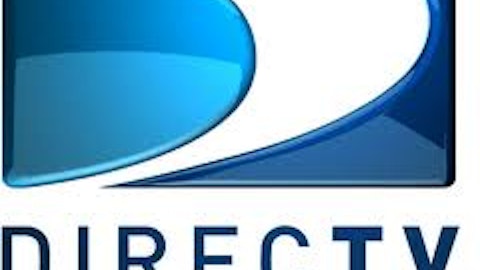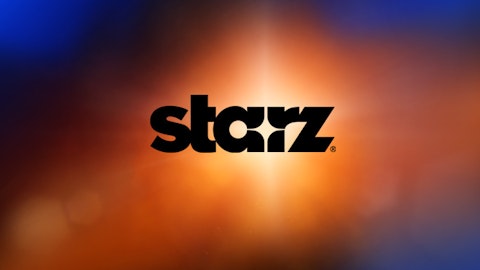With billionaire John Malone making waves in the cable industry, pushing for a merger between cable giants Time Warner Cable Inc (NYSE:TWC) and Charter Communications (NASDAQ:CHTR), investors are getting excited about industry consolidation, which could push stock prices higher.
All three major cable companies are already up nicely over the past few weeks, including Cablevision Systems Corporation (NYSE:CVC), Time Warner Cable Inc (NYSE:TWC) and Charter Communications, Inc. (NASDAQ:CHTR).
I believe that consolidation will likely be the only way for cable companies to stay competitive in an every changing industry; the U.S. cable TV market is rapidly maturing, seeing increased competition and facing rising programming costs.
Rumors abound
The most notable speculation at the rumor mill is that Charter Communications, Inc. (NASDAQ:CHTR) is considering a merger with Time Warner Cable Inc (NYSE:TWC). Behind the deal is John Malone, whose Liberty Media Corp (NASDAQ:LMCA) has a 27% stake in Charter.
If the merger were to come to fruition, Malone, would then push the cable giant to buy out other smaller operators — turning Charter Communications, Inc. (NASDAQ:CHTR) into a “horizontal acquisition machine” that could buy up Cablevision Systems Corporation (NYSE:CVC), DIRECTV (NASDAQ:DTV) or DISH Network Corp. (NASDAQ:DISH).
The real headwind for the deal is if Malone can come up with enough cash to entice Time Warner Cable Inc (NYSE:TWC) shareholders. Time Warner is over six times the size of Cablevision Systems Corporation (NYSE:CVC) in terms of market cap.

Cablevision?
Investment firm Brean Murray believes that Cablevision Systems Corporation (NYSE:CVC) and Time Warner Cable Inc (NYSE:TWC) have neighboring cable systems with little to no overlap in markets, which means there would likely be no regulatory issues in a potential merger/acquisition. Cablevision appears to be a much easier acquisition for Time Warner Cable, which needs to make a move soon.
Industry leader Comcast Corporation (NASDAQ:CMCSA) recently took full control of NBC Universal, helping further propel the cable-giant as a content developer and TV distributor, which further puts pressure on Time Warner Cable Inc (NYSE:TWC) to make a move.
Time Warner Cable is no stranger to growing via acquisitions. The company snatched up the 13th largest cable operator, Insight Communications, back in 2012. In 2011, Time Warner acquired New Wave Communications, getting some 70,000 customers in the Kentucky and Tennessee area.
However, Cablevision Systems Corporation (NYSE:CVC) is family-owned. The Dolan family owns some 75% of the company and has shown no interest in selling the cable operator.
Time Warner Cable Inc (NYSE:TWC) is expected to see revenue growth of 5.5% in 2013 and another 4.5% in 2014. Not too bad for a dying industry. Yet, the problem is under the hood. The cable company expects that programming costs could increase another 10% in 2013. If so, the impact on operating margin could be a 0.5% to 1% decline, pushing free cash flow down to $2.3 billion, versus $2.55 billion in 2012.
Hedge fund trade
Billionaire Mario Gabelli doubled down on Cablevision Systems Corporation (NYSE:CVC) earlier this year. Gabelli’s family of funds upped its stake in Cablevision by 90% at the end of May, now owning 19 million shares and owning over 5% of the cable company (check out Gabelli’s high yielding picks).
Meanwhile, Time Warner had 37 hedge funds long the stock at the end of 1Q. The hedge fund with the largest position included Highfields Capital, with a $245 million position, making up 2.2% of its 13F portfolio (see Highfields’ top picks).
Charter Communications, Inc. (NASDAQ:CHTR) has some of the most robust hedge fund interest, with 54 hedge funds long the stock heading into the second quarter, a 29% increase from previous quarter. Fortress Investment Group held the largest position the stock, worth $520 million and comprising 8.9% of its 13F portfolio (see Fortress’ newest picks).
The bottom line
The industry has to do something. The conventional cable business model is being attached from all angles, these include fiber-based TV services of telecom companies and online video streaming services, including, but not limited to, Verizon Communications Inc. (NYSE:VZ), AT&T Inc. (NYSE:T), DISH Network Corp. (NASDAQ:DISH), DIRECTV (NASDAQ:DTV), Netflix, Inc. (NASDAQ:NFLX) and Hulu.
The outcome of the cable consolidation should prove to be an interesting one, but a necessary one nonetheless. I still believe that one of the best ways to play the industry is Time Warner Cable Inc (NYSE:TWC) — the company has one of the best expected five-year EPS growth rates at 12%.
And despite the run up in its shares, the stock is still trading below historical price to earnings standards.
No matter which way the recent rumors shake out, I think the long-term winner will be Time Warner. And it appears that both Charter Communications, Inc. (NASDAQ:CHTR) and Cablevision Systems Corporation (NYSE:CVC) need Time Warner, more than Time Warner needs either of them.
The article The Cable Consolidation Saga originally appeared on Fool.com and is written by Marshall Hargrave.
Marshall Hargrave has no position in any stocks mentioned. The Motley Fool has no position in any of the stocks mentioned. Marshall is a member of The Motley Fool Blog Network — entries represent the personal opinion of the blogger and are not formally edited.
Copyright © 1995 – 2013 The Motley Fool, LLC. All rights reserved. The Motley Fool has a disclosure policy.






